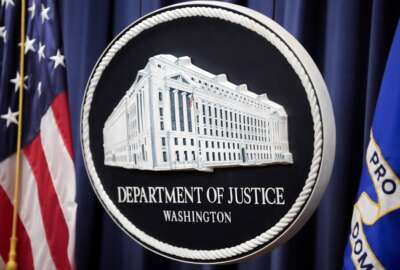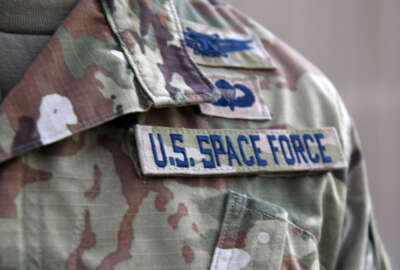Regalbuto helps develop model to assess potential threats to nation’s ports
Anthony Regalbuto led the Coast Guard's effort to evaluate America's ports and eliminate vulnerabilities to potential terrorist attacks.

In the aftermath of the Sept. 11, 2001, terrorist attacks, much of the focus in the transportation world was on securing the nation’s airports.
But what about the other access points across the country? How secure were America’s many ports?
It was that question Anthony Regalbuto set about answering.
He helped to develop the Maritime Security Risk Analysis Model (MSRAM), a system the Coast Guard uses to analyze more than 30,000 potential targets and 100,000 attack scenarios across the country.
Since 2002, the data the Coast Guard collected from MSRAM was used to hand out $2.7 billion in port security grants.
Regalbuto’s efforts were so successful, Capt. Mikeal Staier, chief of the Coast Guard’s domestic port security evaluations, called him the “port security czar.”
“When they talk about securing our borders, it begins overseas and at our ports,” Staier said. “Tony started all that. He was the impetus for getting that off the ground.”
For his work in securing America’s borders, the Partnership for Public Service recently named Regalbuto as one of the finalists for the 2014 Homeland Security and Law Enforcement Medal. The award recognizes federal employees who have made important contributions in the area of homeland security and law enforcement. This includes border and transportation security, civil rights, counterterrorism, emergency response, fraud prevention and intelligence.
Getting to know Anthony Regalbuto
Federal News Radio asked each of the Sammies finalists five questions about themselves. Here are Regalbuto’s responses:
What three words best describe your leadership philosophy?
Having served 43 years in the U.S. Coast Guard (31 years on active duty and 12 years as a civilian), the three words would be Honor, Respect and Devotion to Duty. This is the motto of the U.S. Coast Guard and if you live by these words, you generally will be very successful
What’s the best piece of advice (or words of wisdom) you’ve ever received and who gave it to you?
A senior Coast Guard officer said to me that you may have won the battle but you lost the war. As a junior officer, this was very profound to me since it taught me how to be more diplomatic. It wasn’t necessary to win every engagement and it taught me to pick my battles more carefully.
Also, Stephen Covey in his book “The 7 Habits of Highly Effective People,” one of the habits is “seek first to understand then to be understood.” By understanding the viewpoints of other people, it helps you to shape your own ideas.
Both of these words of wisdom, complement each other.
Who is your greatest role model and why?
St. Peter. He was a fisherman, so he has the maritime roots which I identify with and he wasn’t perfect but generally tried to do the right thing even after having failed.
What’s the last thing you read and what’s next on your reading list? Last book I read was “Captain’s Duty” written by Capt. Richard Phillips and Stephan Talty.
Next book that I would like to reread is “The Next 100 Years” written by George Friedman.
What would be the title of your autobiography and why?
“God, Family and Country.” I have been blessed by God to have such a wonderful family and for being born in this great country. This defines how I try to live my life, including working for such a tremendous organization as the U.S. Coast Guard for my entire adult life.
The Homeland Security and Law Enforcement Medal is just one of the Samuel J. Heyman Service to America Medals (Sammies) presented annually by the Partnership for Public Service. View a photo gallery of all the Sammies nominees.
Copyright © 2024 Federal News Network. All rights reserved. This website is not intended for users located within the European Economic Area.





